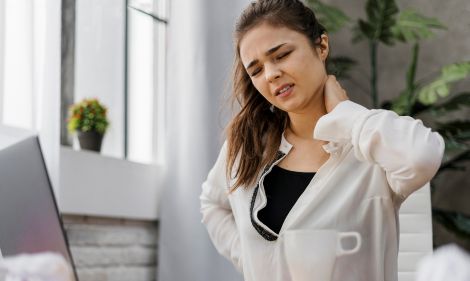Chronic pain is a condition that affects millions of people worldwide, often interfering with daily activities, emotional well-being, and overall quality of life. Unlike acute pain, which is temporary and typically resolves with healing, chronic pain persists for weeks, months, or even years. For those living with this condition, finding effective approaches to managing chronic pain is essential. This article explores practical strategies, therapies, and treatments available to help individuals improve their comfort and regain control of their lives.
What is Chronic Pain?
Chronic pain is defined as pain lasting longer than three months, or beyond the typical healing time for an injury or illness. It may be constant or intermittent and can stem from conditions such as arthritis, nerve damage, fibromyalgia, back injuries, migraines, or other long-term health issues. Understanding the root cause of chronic pain is often the first step in the management of chronic pain, but in many cases, the exact source may be difficult to identify.
Techniques for Chronic Pain Management
There isn’t a single solution for how to manage chronic pain because each individual’s experience is unique. Instead, a combination of techniques is often recommended to address physical, emotional, and lifestyle factors contributing to discomfort. Below are some widely recognized approaches to pain management chronic conditions:
1. Medications
Medications play an important role in chronic pain management, especially when pain is severe enough to limit mobility and daily functioning. These may include:
- Over-the-counter pain relievers like acetaminophen or ibuprofen.
- Prescription medications such as muscle relaxants, antidepressants, or anticonvulsants for nerve-related pain.
- In some cases, opioid medications may be used under strict medical supervision.
While medications can help, they are often most effective when combined with other strategies rather than used as the sole treatment.
2. Physical Therapy and Exercise
Movement is crucial in the management of chronic pain. Physical therapists design exercises that improve flexibility, strength, and posture, which can significantly reduce pain over time. Gentle activities like swimming, yoga, or walking also help release endorphins, the body’s natural painkillers.
3. Cognitive-Behavioral Therapy (CBT)
Chronic pain often impacts mental health, leading to anxiety, stress, or depression. CBT is a psychological technique that helps individuals reframe negative thought patterns and develop coping strategies. This can be particularly helpful in managing chronic pain, as emotional resilience often reduces the perception of pain.
4. Interventional Procedures
In some cases, physicians may recommend interventional procedures such as nerve blocks, corticosteroid injections, or spinal cord stimulation. These treatments can be effective when other methods of pain management chronic conditions are not enough to provide relief.
5. Lifestyle Adjustments
Healthy habits play a significant role in chronic pain management. This includes maintaining a balanced diet, getting adequate sleep, practicing stress management techniques such as meditation, and avoiding activities that aggravate the pain.
6. Alternative and Complementary Therapies
Many individuals find relief from treatments outside conventional medicine, including acupuncture, massage therapy, chiropractic care, and mindfulness meditation. These therapies can be integrated into a broader plan at a chronic pain management clinic.
Role of a Chronic Pain Management Clinic
A chronic pain management clinic is a specialized facility designed to provide comprehensive care for individuals living with ongoing pain. These clinics typically offer a multidisciplinary approach, combining the expertise of physicians, physical therapists, psychologists, and other healthcare professionals.
By visiting a clinic, patients gain access to customized treatment plans that address both physical and emotional aspects of pain. This holistic approach ensures that patients not only find ways for managing chronic pain but also improve their quality of life in meaningful ways.
Importance of a Personalized Plan
The most effective method for how to manage chronic pain is through a personalized treatment plan that considers the patient’s unique condition, lifestyle, and goals. What works for one individual may not work for another, which is why healthcare providers stress the importance of combining therapies and regularly reassessing progress.
Chronic pain is a long-term challenge, but with the right combination of strategies, individuals can achieve significant improvements in both comfort and daily functioning.
Conclusion
Chronic pain may be a lifelong challenge, but with proper support, education, and treatment, individuals can lead fulfilling lives. Effective management of chronic pain requires a combination of medical interventions, therapy, lifestyle changes, and sometimes specialized care from a chronic pain management clinic. By embracing a comprehensive and personalized approach, people living with chronic pain can reclaim their independence, improve their well-being, and move toward a healthier future.
Frequently Asked Questions (FAQs)
Q1. What is the first step in managing chronic pain?
The first step is identifying the cause of the pain through medical evaluation. Once diagnosed, healthcare providers create a treatment plan tailored to the patient’s needs.
Q2. Can lifestyle changes really help with chronic pain?
Yes. Regular exercise, proper nutrition, stress reduction, and good sleep habits can make a noticeable difference in chronic pain management.
Q3. Do I need to visit a chronic pain management clinic?
While not everyone requires specialized care, a chronic pain management clinic can provide advanced treatments and multidisciplinary support that may not be available elsewhere.
Q4. Is medication the only option for managing chronic pain?
No. Medications are just one tool. A combination of physical therapy, mental health support, lifestyle adjustments, and interventional procedures often provides better results.
Q5. How long does it take to see improvement in pain levels?
The timeline varies depending on the cause and severity of the pain, as well as the treatments used. Some people notice improvement in weeks, while others require months of consistent care.
Don’t let pain control your life—take control with our chronic pain management solutions. Visit our website https://scclittleelm.com/our-services/chronic-pain-management/ or call us at (469) 200-5974 now for support.





